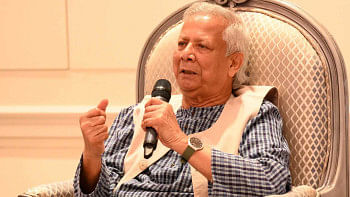Credible data crucial for reforms: economists
Economists yesterday called for credible data, with some alleging that data is manipulated by the government in the absence of independence of the Bangladesh Bureau of Statistics, the state-run statistical agency.
“Everything has to be approved by the minister, and the minister will insist on raising the growth rate, lowering inflation rate and so on,” said Akbar Ali Khan, a former finance adviser to a caretaker government, without taking any specific minister's name.
Khan's comments came at a workshop styled 'Bangladesh Institutional Diagnostic Tool', organised yesterday by the South Asian Network on Economic Modelling at BRAC Centre Inn.
“The bureau of statistics was a little bit independent when I was the finance secretary 25 years ago. At that time, they used to argue. Now, there is nobody to fight for their statistics. So there is no integrity of the statistics.”
Without authentic statistics, it is not possible to undertake genuine reforms.
“If we do not have continued growth in agriculture, if we do not have garment flourishing and if we do not have remittance flourishing, then the Bangladesh economy will have serious problems. Politicians should take the economy seriously,” he added.
At another session, Wahiduddin Mahmud, a noted economist, suggested increased investment for diversification of the export basket and development of environment-friendly production.
Earlier in the day, SANEM Executive Director Selim Raihan said Bangladesh has been able to increase its per capita GDP by 15 times, cut down the poverty rate from as high as 71 percent in the 1970s to 24 percent in 2016.
The nation graduated from the World Bank's classification of low-income country to lower-middle income country category in 2015 and met all three criteria for review to graduate from the least-developed country (LDC) status in 2018.
“The fundamental question is whether Bangladesh can continue its success and achieve larger development goals with the business as usual growth and development processes.”
There are concerns that the weak institutional capacity might work as a binding constraint for the country to meet development targets.
“The dividends from the so-called Bangladesh surprise are likely to be on a decline,” he added.
Atiur Rahman, former governor of Bangladesh Bank, stressed on the need for reforms. “If we continue to do business as usual, we will do as usual.”
He also touched upon the weakness of institutions and efforts by interested quarters to capture regulation. “They are setting the rate of interest,” he said, citing the bank directors' move to fix the interest rate on lending at 9 percent and deposit at 6 percent.
“Bring competition,” he added.
In a presentation on the Institutional Diagnostic of Development-Lessons from Tanzania and Benin, and Implications for Bangladesh, Francois Bourguignon, chair emeritus of the Paris School of Economics, suggested allowing competition and ensuring competitive markets.
“Develop a culture of regular and rigorous evaluation of public sector and government policies,” he added.
AB Mirza Azizul Islam, a former adviser to a caretaker government, and Qazi Kholiquzzaman Ahmad, chairman of Palli Karma-Sahayak Foundation, also spoke among others.

 For all latest news, follow The Daily Star's Google News channel.
For all latest news, follow The Daily Star's Google News channel. 



Comments